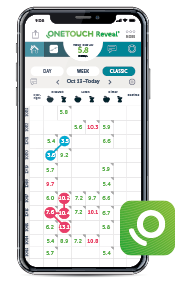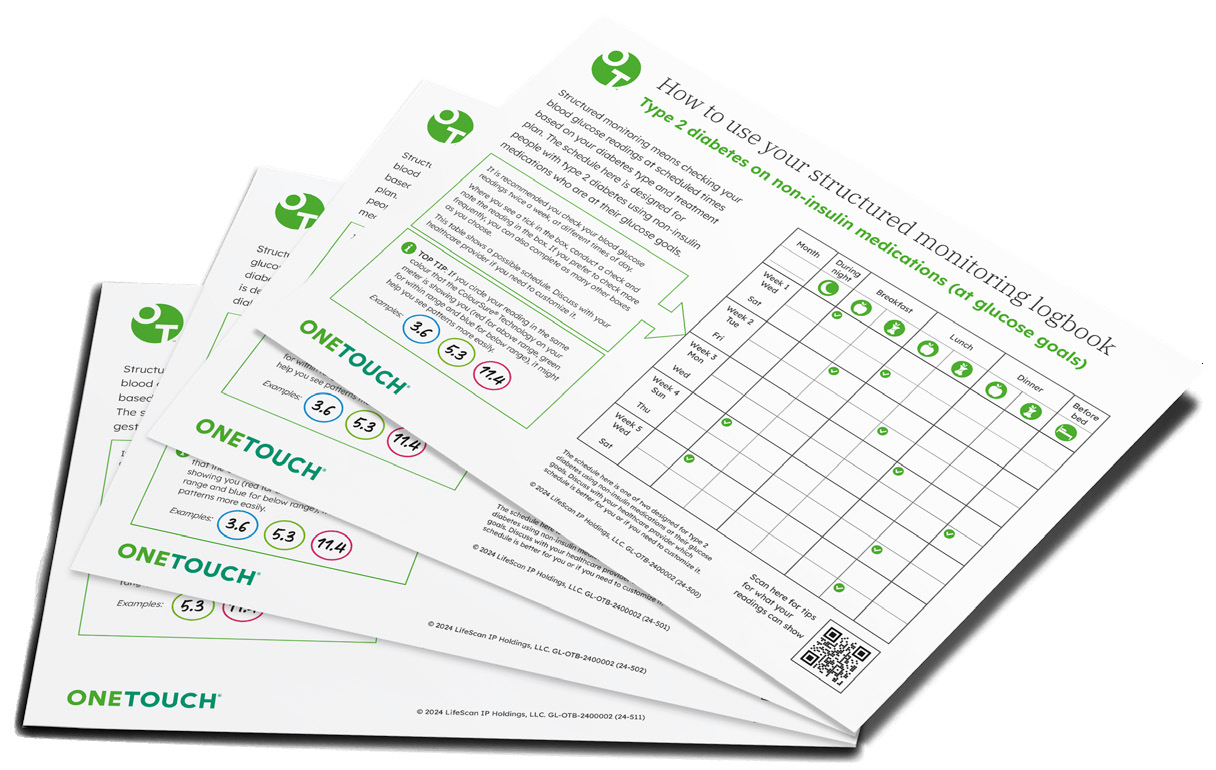
Notice trends and patterns in your glucose numbers and make connections between your numbers and your habits, such as food, exercise or medications.
The goal of diabetes monitoring is to keep blood glucose levels in a healthy range. This can help reduce the risk for serious health complications.
Structured monitoring means checking your blood glucose readings at scheduled times and, in some cases, on specific days, based on your diabetes type and treatment plan. By following these set patterns of checks, you may be able to better:
How regularly you should check your blood glucose will vary depending on a number of factors, including your type of diabetes, medication type and your diabetes goals. Your doctor may have recommended a schedule to you, or you can understand some possible schedules by downloading one of our tailored templates.
The easiest way to keep track of your readings is by using your OneTouch® meter connected to the OneTouch Reveal® mobile app. Using ColourSure® technology, the OneTouch Reveal® mobile app transforms data into quick visual snapshots that allow you to dive into personalized dashboards that connect your blood glucose with food, insulin and activity, as well as easily share your readings with your healthcare professional.
Structured monitoring means checking your blood glucose readings at scheduled times and, in some cases, on specific days, based on your diabetes type and treatment plan.
Once you have a structured monitoring schedule tailored to you, it’s time to record and track your readings.

When you use the OneTouch Verio Reflect® meter, the electronic logbook automatically logs and organizes your blood glucose results directly to your phone via Bluetooth.
Download the OneTouch Reveal mobile app for FREE:

Free PDF download
If you prefer to use pen and paper to log your results manually, you can download and print your monitoring template.
Treatment decisions should be based on the current numerical blood glucose reading and healthcare professional recommendations.
GL-OTB-2400007 (24-600)